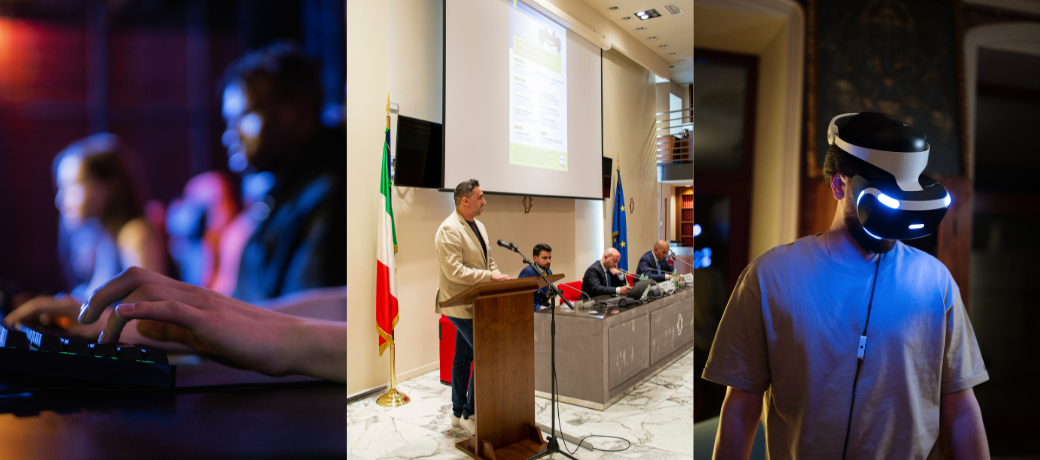Celebrating the monumental milestone of the Italian Esports scene, marked by a historic conference held at the Italian Parliament in Rome, the OIES has announced the first Esports & Gaming White Paper. This remarkable achievement paves the way for a thriving industry that has firmly established its global presence, setting a promising course for the future.
The 8th and 9th of May marked a pivotal turning point for the advancement of the Esports sector. In a groundbreaking move, the Italian Parliament became the stage for in-depth discussions on this fast-growing industry. The OIES spearheaded this initiative, extending a special invitation to our CEO, Alessandro De Grandi, to join forces with other industry experts in sharing innovative solutions and proposals. This momentous gathering fostered collaboration and propelled the Esports landscape to new heights.
But that’s not all. The project led by OIES does not come to a halt at this point, as it presses forward with the creation of the first Esports & Gaming White Paper. In this article, we will delve into its concepts and aim in depth.
THE FIRST ESPORTS & GAMING WHITE PAPER’S CONTENTS
What sparked the inception of this pioneering initiative to create Italy's first Esports & Gaming White Paper? It stems from the discussions held in Parliament that shed light on the regulatory, economic, and social aspects of gaming, bringing attention to the challenges and opportunities in front of the institutions.
The White Paper will encompass a wide range of insights, proposals, and analyses from top experts in the Esports and Web3 sectors, including our CEO.
There are numerous areas to explore, one of which is the establishment of comprehensive regulations for virtual sports, which currently do not exist. This crucial step is vital for safeguarding players and those involved in the Esports industry, including the renowned LAN rooms.
Many LAN rooms have closed due to a lack of regulations. The White Paper will present a range of proposals aimed at revitalizing these environments and highlighting their significance. It will tackle the regulation of Esports tournaments, offering a series of recommendations to provide enhanced contractual frameworks and safeguards for video game players.
Moreover, it will address a wide range of issues, including privacy and player protection, as well as the regulatory gaps concerning sensitive data. And what about new technologies?
Among the main challenges identified, accessibility and technological disparity play a key role. The high cost of emerging technologies such as Virtual Reality and Augmented Reality, coupled with limited access to high-speed connectivity, can create a division between users who can fully embrace such innovations and those who cannot.
Furthermore, the rise of emerging technologies in Esports also brings forth ethical considerations, including the issue of excessive dependence on these technologies. According to the reputable source Ansa, a staggering 500,000 young individuals from Generation Z are grappling with gaming addiction, leading to significant social and health challenges.












